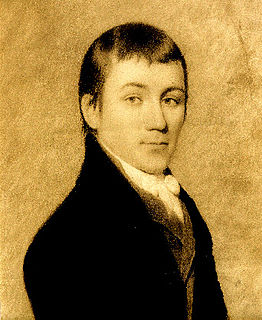A Quote by Joseph Addison
Among those evils which befall us, there are many which have been more painful to us in the prospect than by their actual pressure.
Related Quotes
People need to learn how to respond to each other's hatreds with love - which is what Jesus taught us, which is what Buddha came here to teach us, which is what Muhammad taught us, which is what all of the great spiritual masters who have ever walked among us who live at those highest energies taught us - responding to force with more force will just create more problems.
We do not rest satisfied with the present.... So imprudent we are that we wander in the times which are not ours and do not thinkof the only one which belongs to us; and so idle are we that we dream of those times which are no more and thoughtlessly overlook that which alone exists. For the present is generally painful to us.
We need be careful how we deal with those about us, when every death carries to some small circle of survivors, thoughts of so much omitted, and so little done- of so many things forgotten, and so many more which might have been repaired! There is no remorse so deep as that which is unavailing; if we would be spared its tortures, let us remember this, in time.
How glorious, then, is the prospect, the reverse of all the past, which is now opening upon us, and upon the world. Government, we may now expect to see, not only in theory and in books but in actual practice, calculated for the general good, and taking no more upon it than the general good requires, leaving all men the enjoyment of as many of their natural rights as possible, and no more interfering with matters of religion, with men's notions concerning God, and a future state, than with philosophy, or medicine.
I believe what has kept us relevant over the years is not just the fashion which has sometimes been more timely than other times but has also been our messages, which have consistently reflected the context of the world we're living in and what was happening and that which was affecting what we were thinking and what was inspiring us.
We are unreasonably desirous to separate the goods of life from those evils which Providence has connected with them, and to catch advantages without paying the price at which they are offered to us. Every man wishes to be rich, but very few have the powers necessary to raise a sudden fortune, either by new discoveries, or by superiority of skill in any necessary employment; and among lower understandings many want the firmness and industry requisite to regular gain and gradual acquisitions.
There is a form of eminence which does not depend on fate; it is an air which sets us apart and seems to prtend great things; it is the value which we unconsciously attach to ourselves; it is the quality which wins us deference of others; more than birth, position, or ability, it gives us ascendance.


































